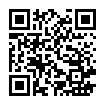Оценка социального самочувствия и деятельности политических лидеров в условиях пандемии COVID-19 (в зеркале фокус-групп)
Научная статья
Для цитирования
Шентякова А. В. Оценка социального самочувствия и деятельности политических лидеров в условиях пандемии COVID-19 (в зеркале фокус-групп) // Власть и элиты. 2021. Том 8. № 2. С. 55–71. DOI: https://doi.org/10.31119/pe.2021.8.2.3 EDN: CSRQEM
Аннотация
Рассматриваются результаты прикладного исследования об особенностях восприятия жителями регионов деятельности политических лидеров в условиях пандемии коронавируса. Целью исследования было выявление динамики в отношении к политическим лидерам со стороны представителей разных социальных групп в кризисных условиях. Исследование восприятия гражданами рисков, проблем, своего самочувствия и влияние этих факторов на отношение к властным структурам и политическим лидерам проводилось с использованием метода фокусгрупп. Групповые дискуссии позволили выявить ряд изменений в сознании и оценках жителей регионов. В кризисных условиях существенно вырос запрос на две составляющих эффективной работы государственных органов: с одной стороны, на оперативность реагирования, с другой — на обратную связь и информационное сопровождение прини
Рассматриваются результаты прикладного исследования об особенностях восприятия жителями регионов деятельности политических лидеров в условиях пандемии коронавируса. Целью исследования было выявление динамики в отношении к политическим лидерам со стороны представителей разных социальных групп в кризисных условиях. Исследование восприятия гражданами рисков, проблем, своего самочувствия и влияние этих факторов на отношение к властным структурам и политическим лидерам проводилось с использованием метода фокусгрупп. Групповые дискуссии позволили выявить ряд изменений в сознании и оценках жителей регионов. В кризисных условиях существенно вырос запрос на две составляющих эффективной работы государственных органов: с одной стороны, на оперативность реагирования, с другой — на обратную связь и информационное сопровождение принимаемых решений. Оба параметра оценки значительно связаны с уровнем легитимности власти. При оценке ситуации пандемии и решений всего спектра проблем со стороны органов власти важным фактором стал тип населенного пункта и возраст участников. Гендерный фактор показал слабое влияние.
Среди молодых участников фокусгрупп усилились оппозиционные настроения и негативное отношение к властным институтам и отдельным лидерам. Люди среднего возраста (35–50 лет) отмечали рост негативных оценок работы системы властных структур, отсутствие реальных лидерских качеств среди региональных политиков. Анализ данных показал снижение уровня доверия к президенту и изменение в восприятии его образа среди самой старшей возрастной группымаемых решений. Оба параметра оценки значительно связаны с уровнем легитимности власти. При оценке ситуации пандемии и решений всего спектра проблем со стороны органов власти важным фактором стал тип населенного пункта и возраст участников. Гендерный фактор показал слабое влияние.
Среди молодых участников фокусгрупп усилились оппозиционные настроения и негативное отношение к властным институтам и отдельным лидерам. Люди среднего возраста (35–50 лет) отмечали рост негативных оценок работы системы властных структур, отсутствие реальных лидерских качеств среди региональных политиков. Анализ данных показал снижение уровня доверия к президенту и изменение в восприятии его образа среди самой старшей возрастной группы.
Ключевые слова:
пандемия COVID19, социальное самочувствие, политические лидеры, легитимность, фокус-группа
Литература
1. Великая Н. М., Белова Н. И. Социально-экономические риски периода пандемии и практики их преодоления: политика государств и стратегии граждан // Logos et Praxis. 2021. Т. 20, № 1. С. 78–88.
2. Левашов В.К., Великая Н.М. Публичная легитимность российского государства в условиях пандемии и выборов в Государственную Думу // Социальное пространство. 2021. Т. 7, № 4. С. 1–14.
2. Левашов В.К., Великая Н.М. Публичная легитимность российского государства в условиях пандемии и выборов в Государственную Думу // Социальное пространство. 2021. Т. 7, № 4. С. 1–14.

Статья
Поступила: 10.08.2021
Опубликована: 26.10.2021
Форматы цитирования
Другие форматы цитирования:
ACM
[1]
Шентякова, А.В. 2021. Оценка социального самочувствия и деятельности политических лидеров в условиях пандемии COVID-19 (в зеркале фокус-групп). Власть и элиты. 8, 2 (окт. 2021), 55–71. DOI:https://doi.org/10.31119/pe.2021.8.2.3.
Раздел
Российские элиты
